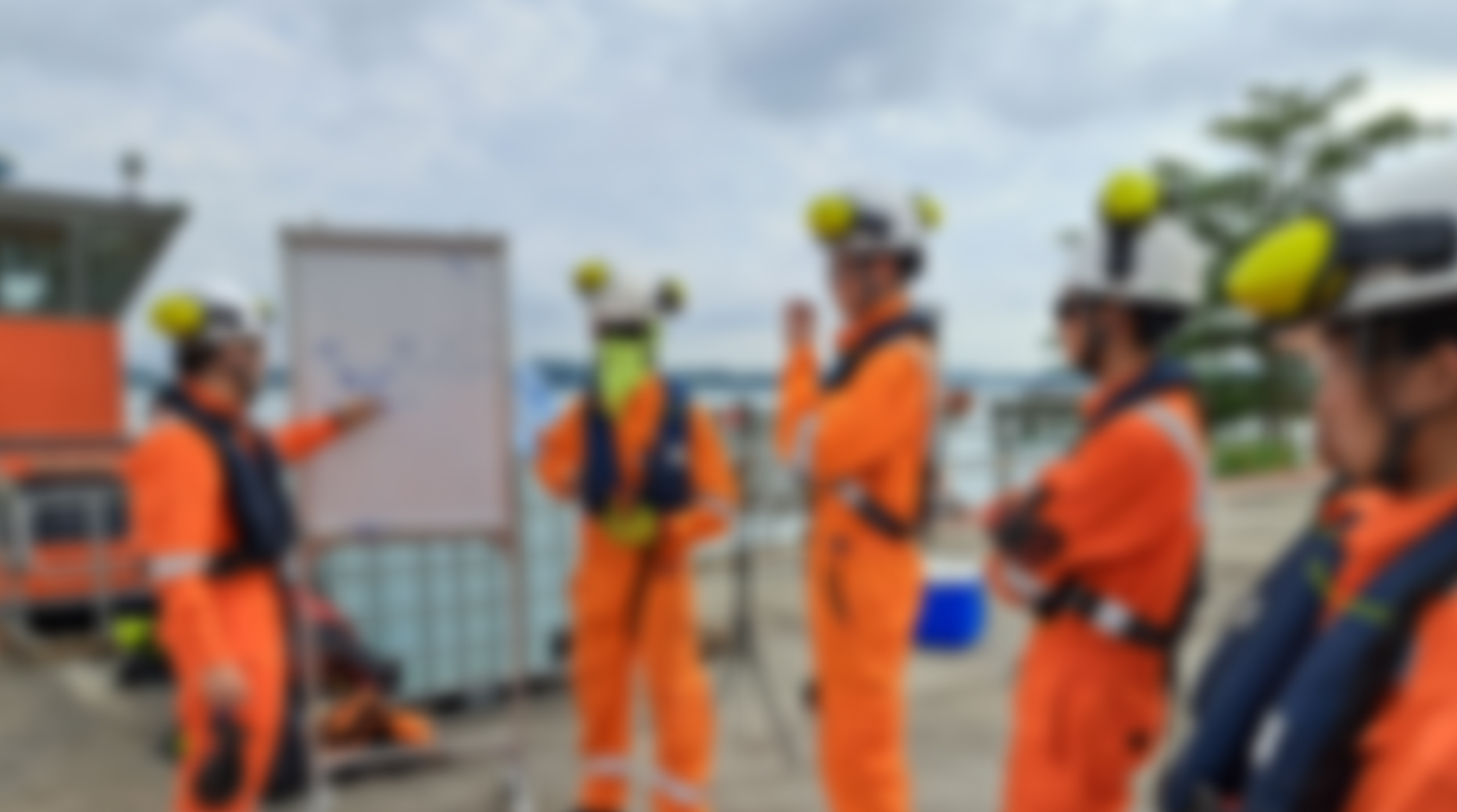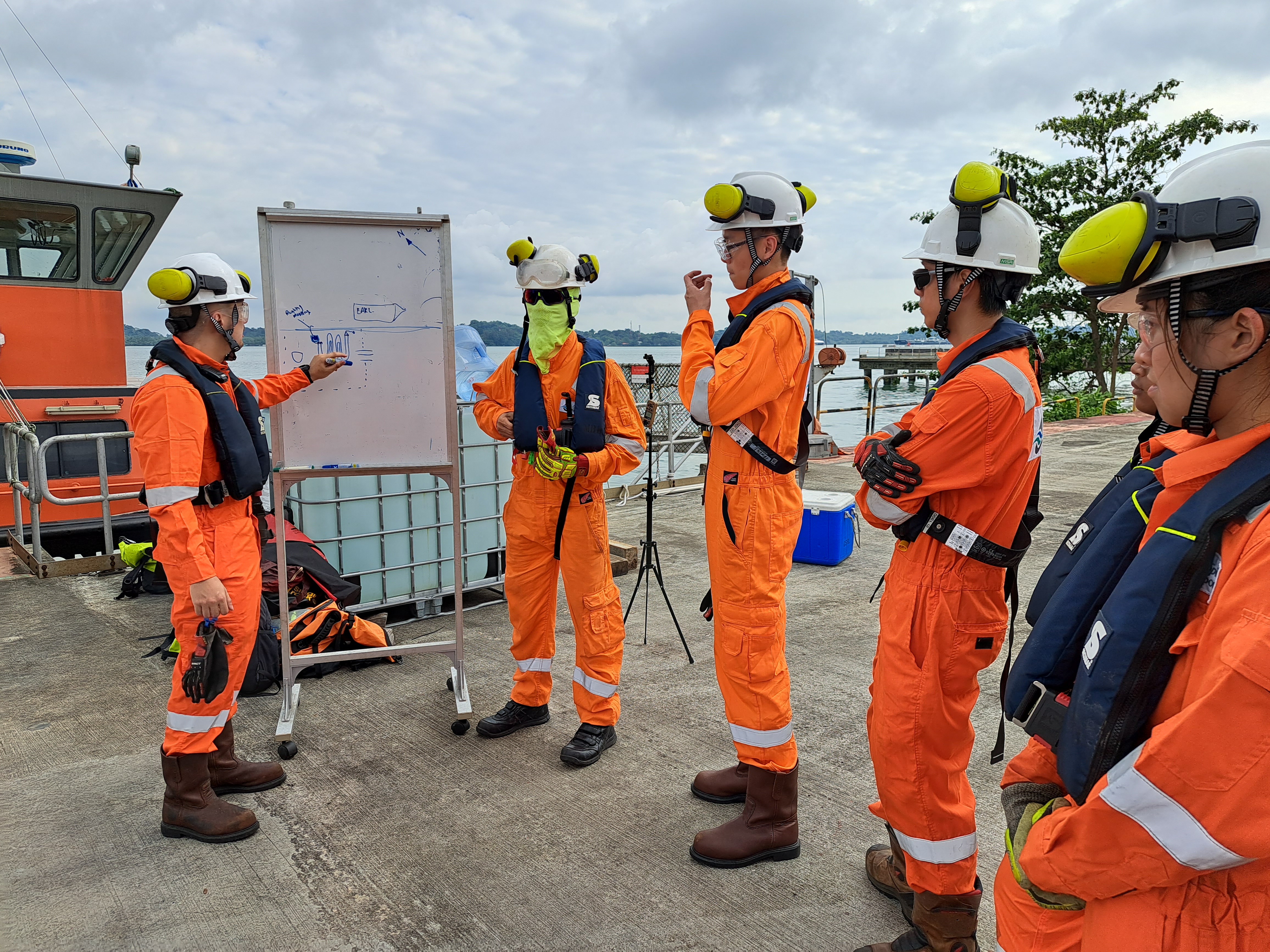In this immersive classroom-based experience, we focus on the response requirements of the corporate decision-maker within the UKCS.
Understand the behaviour of oil spills in the marine environment and the oil spill response requirements of the role, including priority setting, reporting requirements and interactions with relevant government agencies.
Why Face-to-Face Matters
Our commitment to excellence extends to the format of this course. Conducted in a face-to-face setting, this training provides a unique opportunity for direct interaction, collaborative learning, and real-time engagement. Through in-person discussions and hands-on activities, you'll gain a deeper understanding of response operational requirements within the UKCS, and raise awareness of stakeholder engagement for those undertaking dialogue with response personnel.
This training course is essential for corporate decision-makers working for a company operating in UKCS waters, providing you with the required UK training standard. The course is BEIS-accredited and is the minimum requirement for any person performing the role of:
- Operators Representative or Emergency Operations Manager within the SOSREP's (Secretary of State's Representative) Operations Control Unit (OCU)
- Duty Manager, Emergency Room Manager and/or Incident Commander (within the Incident Command System)
- Corporate decision-makers dealing with priority setting and significant external liaison during a spill response
- Personnel involved in the decision-making processes in a UKCS response or liaison with the relevant government agencies.
This course accreditation is valid for 3 years.
As an essential training course for operating in the UKCS, you will learn and experience the following:
- The key legislation and agreements
- Awareness of spill response issues specific to the UKCS, including statutory requirements and applicable spill response techniques
- The oil spill response requirements placed upon an Operator
- The role and collaboration with relevant government agencies during a spill response, including the SOSREP
- The significance of Oil Pollution Emergency Plans (OPEPs)
- The behaviour and potential impacts of an oil spill within the marine environment
- Response options and spill termination.
During this course, you will cover the following topics:
- Legislation and agreements
- Oil Pollution Emergency Plans (OPEPs)
- Causes and fates of marine oil spills
- Environmental and economic impacts
- Response techniques, limitations and considerations
- Termination of a spill response.





